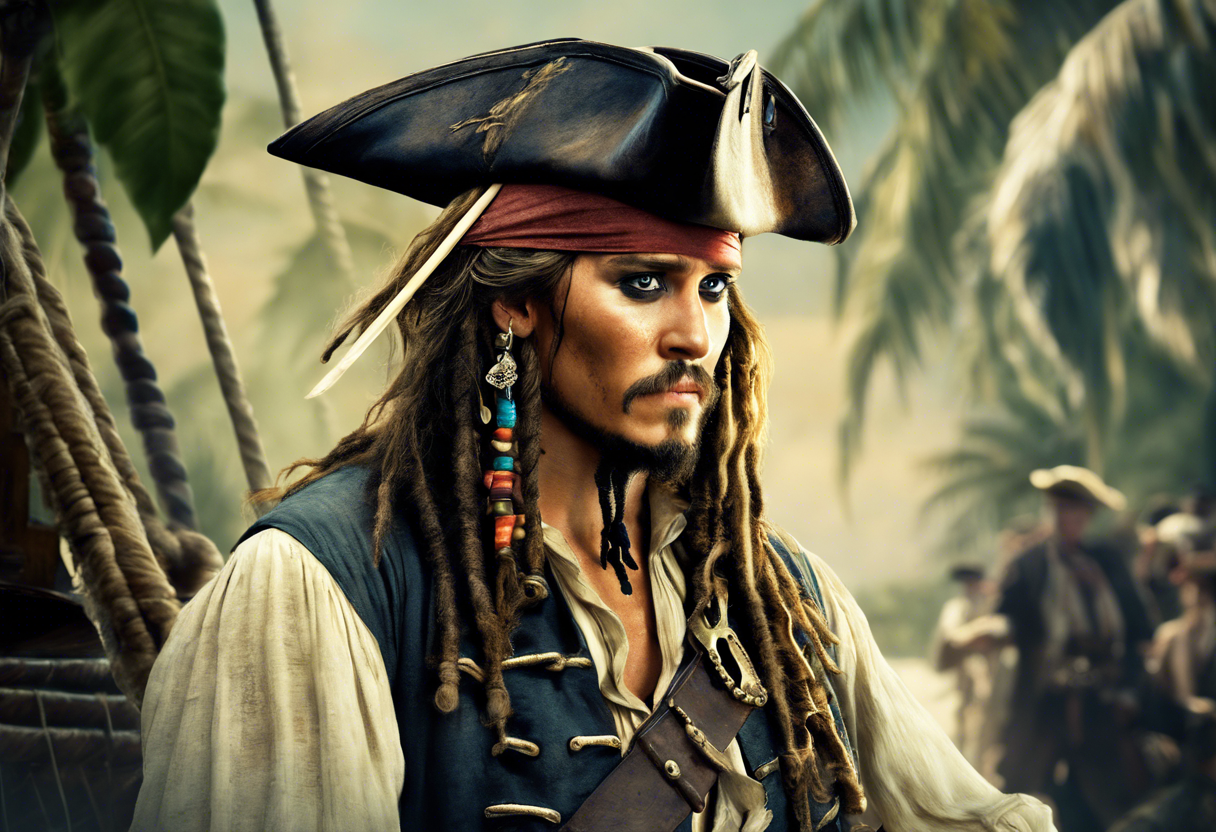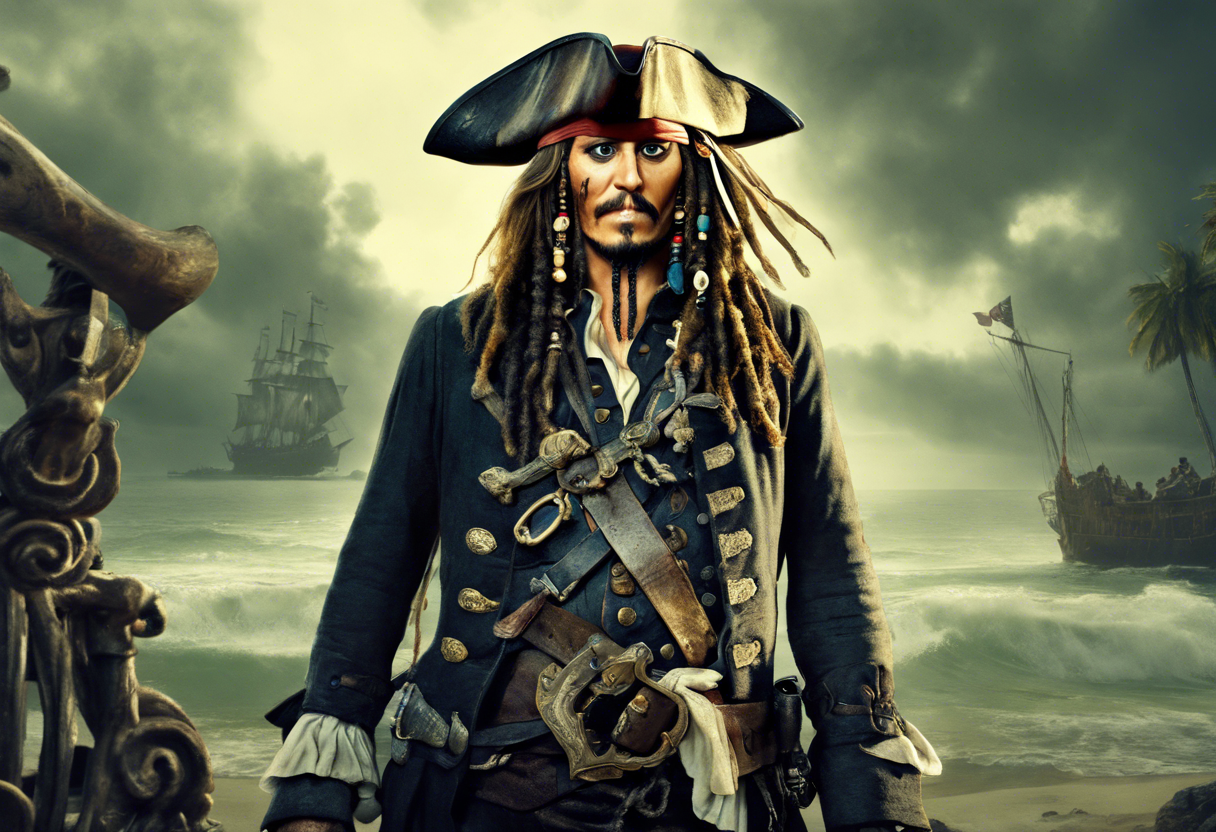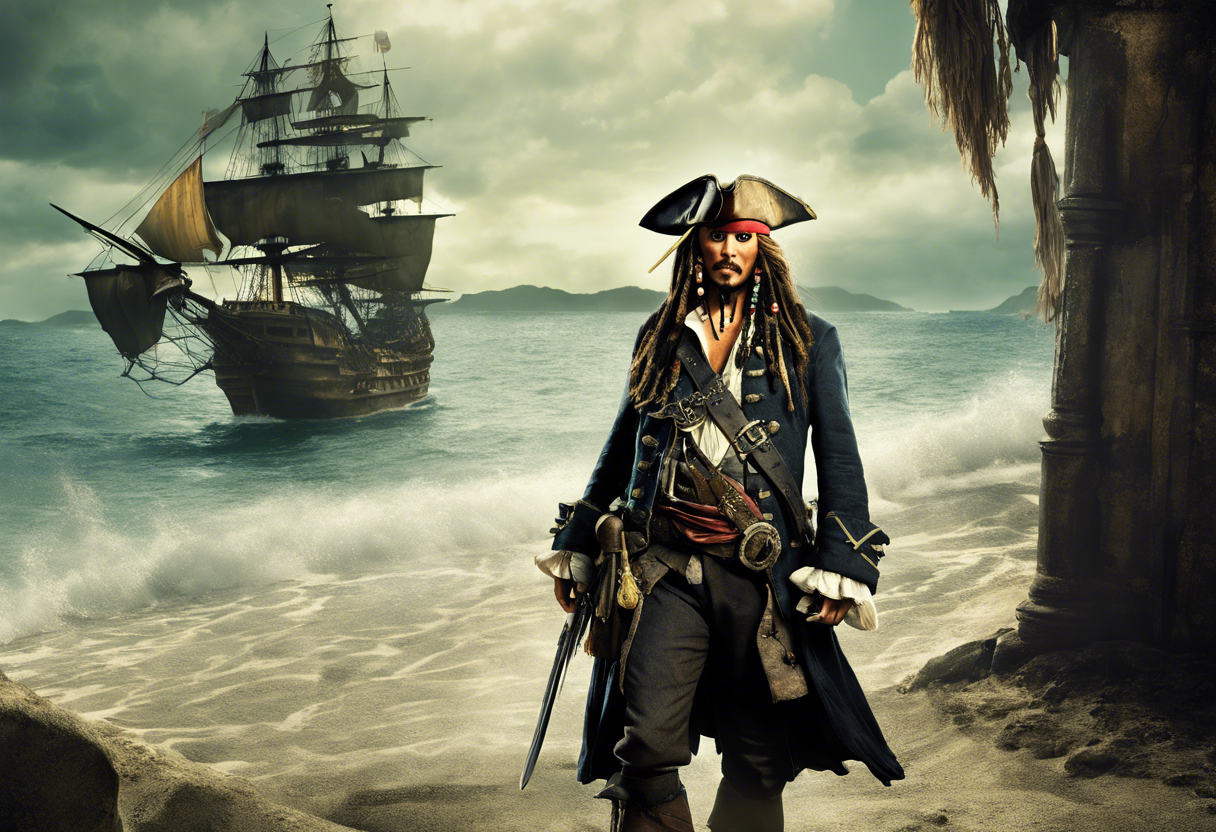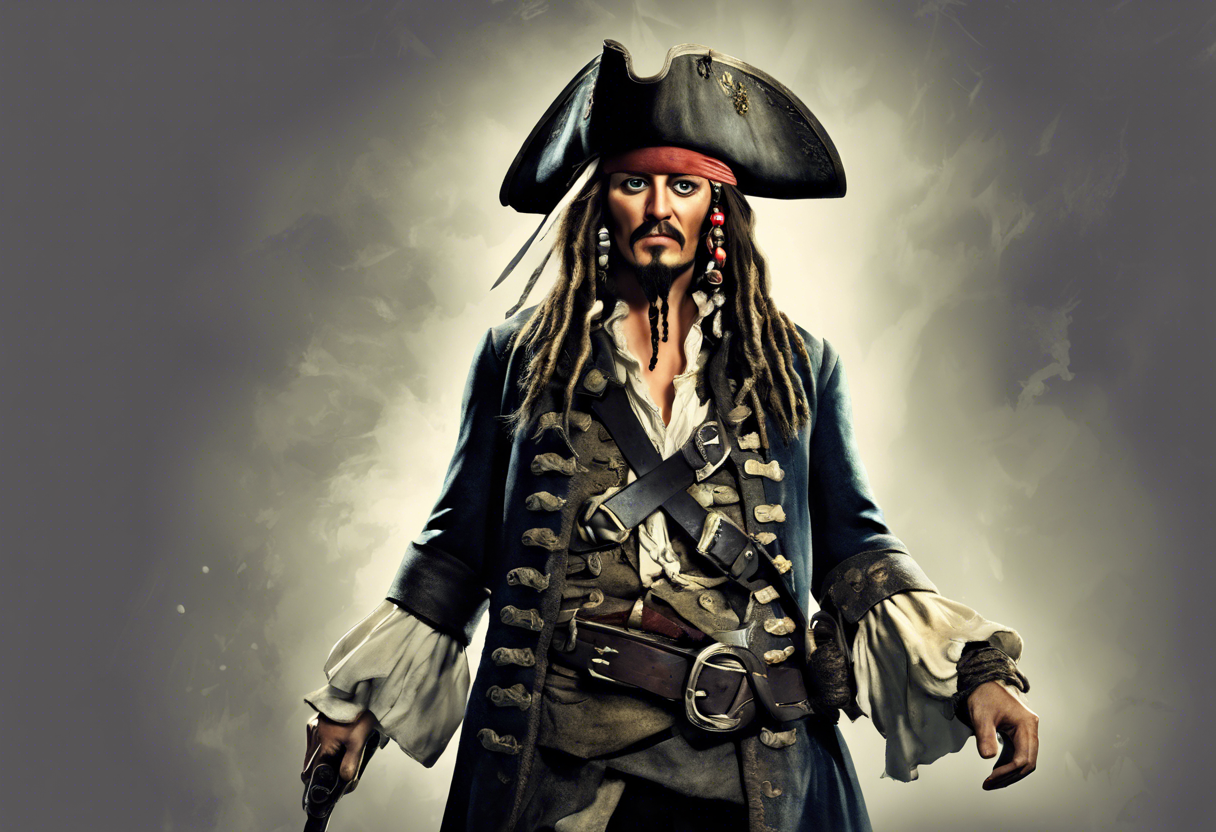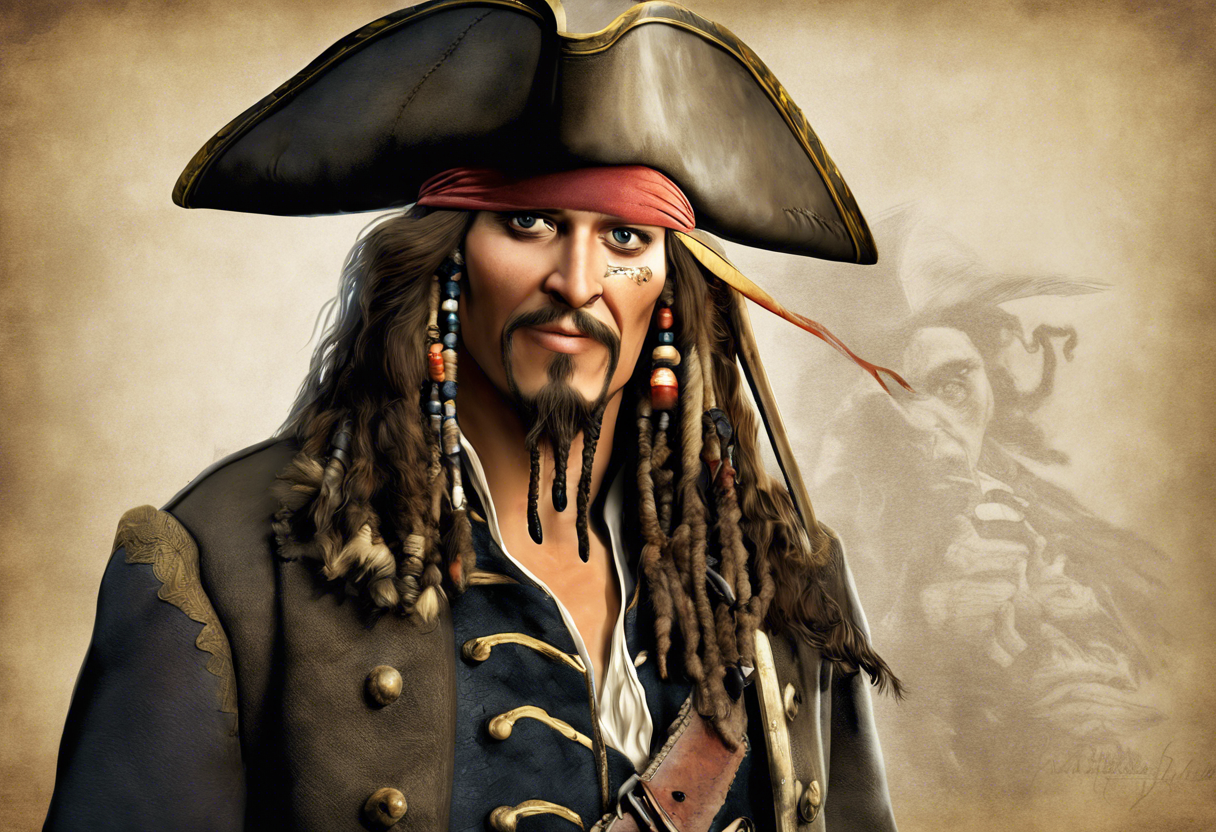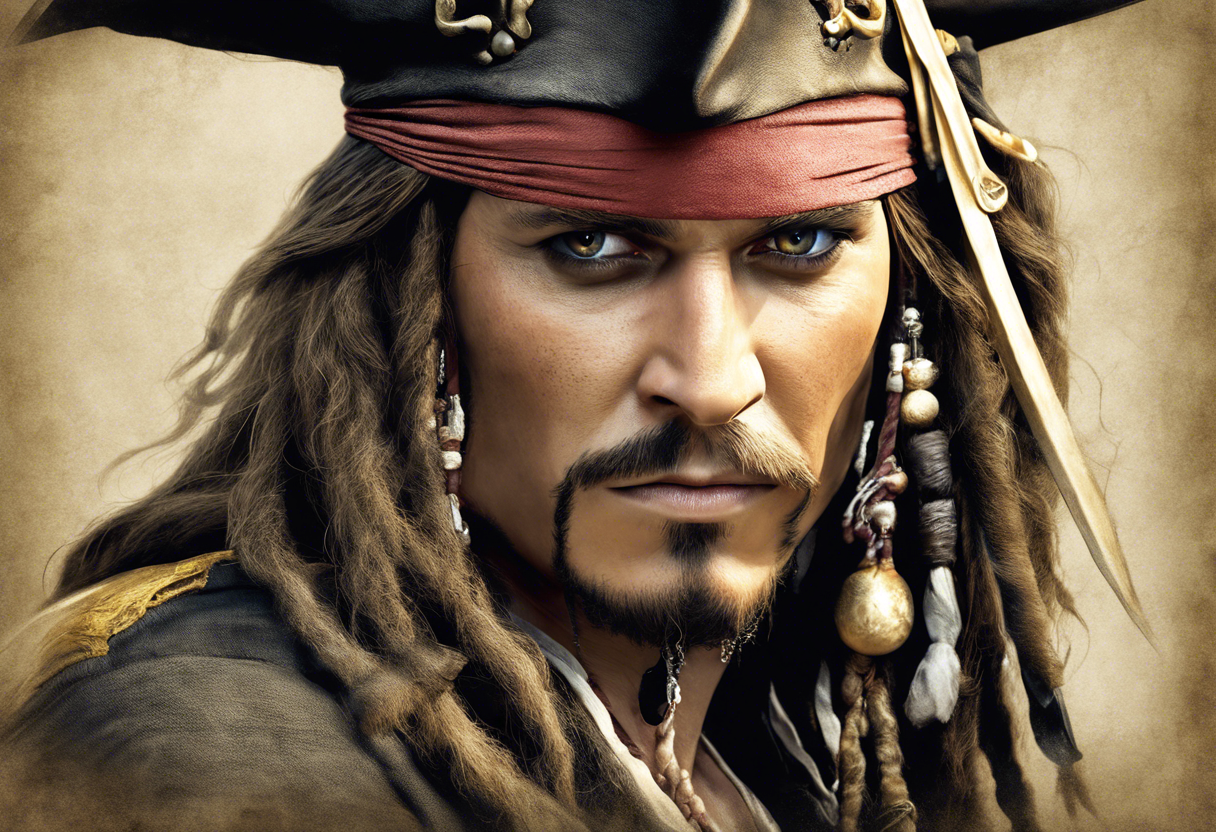Contents
Introduction
Captain Nathaniel Hawk is the protagonist of the video game Pirates of the Caribbean, an action role-playing game set in the 17th century Caribbean. Unlike the characters from the popular film franchise of the same name, Nathaniel Hawk is a unique creation for this game, which was originally developed as a sequel to Sea Dogs but later adapted to fit the Pirates of the Caribbean theme[1][5].
Nathaniel Hawk’s backstory begins with his arrival on the island of Oxbay after a fierce storm. Here, he learns that his first mate, Malcolm Hatcher, is retiring, prompting Hawk to hire a new crew and first mate. This sets the stage for his adventures as he becomes embroiled in the territorial conflicts between European factions in the Caribbean[1][5].
Hawk’s defining traits include his leadership skills, strategic thinking, and the ability to navigate both the complexities of naval warfare and the political intrigue of the colonial era. His role in the narrative is central, as he undertakes various quests for different nations, including the British, and navigates the supernatural elements that include the ghost ship Black Pearl[1][2].
Role in the Story
Nathaniel Hawk’s storyline is rich with adventure and conflict. Upon leaving Oxbay, he discovers that the French have attacked and captured the colony. Hawk manages to escape and warns the English governor, Robert Christopher Silehard, on Redmond Island about the French attack. This warning sets off a series of quests where Hawk is tasked with investigating the condition in Oxbay, preventing a French supply ship from reaching the island, unloading English troops in the jungles, and rescuing an English spy from French captivity[1][5].
As Hawk prepares for his next quest to annex Oxbay, he reunites with old friends Danielle Greene and Ralph Fawn, but their reunion is short-lived as Ralph is killed during an attempt to arrest Danielle and Hawk. Hawk is captured and imprisoned, where he meets Edgar Attwood, an ex-cannoneer who can later join his crew. After being released from prison, Hawk continues his missions, eventually meeting an old inventor who helps him find a treasure that can defeat the Black Pearl[1][5].
Hawk’s journey is also filled with side quests, such as helping a Dutch colonist find kidnapped children, which add depth to his character and the world around him. These quests highlight his versatility and willingness to help those in need, even when it does not directly benefit his main objectives[1][2].
Character Analysis
Nathaniel Hawk is a complex character with a mix of strengths and flaws. His leadership skills and strategic thinking are evident in how he navigates the complex web of alliances and rivalries between European nations. He is resourceful and adaptable, able to recruit and manage a crew, upgrade his ships, and acquire new skills and abilities[1][2].
Hawk’s motivations are driven by a sense of duty and loyalty. He is committed to his missions and the people he cares about, such as Danielle Greene and his crew. This commitment often puts him in perilous situations, but it also underscores his bravery and willingness to take risks[1][5].
One of Hawk’s significant strengths is his ability to form alliances and recruit skilled officers to his crew. Characters like Edgar Attwood, whom he meets in prison, add depth to his story and provide additional skills that aid in his quests. However, Hawk also faces personal losses, such as the death of Ralph Fawn, which humanize him and make his journey more relatable[1][5].
Themes and Symbolism
Nathaniel Hawk’s character embodies several themes that are central to the game. One of the primary themes is the struggle for power and control in the colonial era. Hawk’s involvement in the conflicts between European nations highlights the political and military tensions of the time. His ability to navigate these complexities symbolizes the adaptability and cunning required to survive in such an environment[1][2].
Another theme is the importance of loyalty and friendship. Hawk’s relationships with his crew and friends like Danielle Greene and Ralph Fawn demonstrate the value he places on these bonds. The loss of Ralph Fawn serves as a poignant reminder of the risks and sacrifices involved in these relationships[1][5].
The supernatural element, particularly the ghost ship Black Pearl, adds a layer of mystery and danger to Hawk’s journey. This element symbolizes the unknown and the fears that sailors of the era would have faced, making Hawk’s ultimate confrontation with the Black Pearl a climactic and symbolic moment in the game[1][5].
Cultural Impact
Despite not being directly connected to the popular film franchise, Nathaniel Hawk has made a significant impact on the gaming community. The game Pirates of the Caribbean, in which he is the protagonist, was one of the first to utilize multi-threaded code optimized for Intel’s Hyper-Threading technology, making it a technological milestone[5].
The game’s reception among fans was positive, with many appreciating the depth of the storyline, the complexity of the characters, and the open-ended gameplay that allowed players to choose their own path. Nathaniel Hawk’s character, in particular, was praised for his depth and the variety of roles he could play, from trader to pirate[2].
In terms of cultural influence, Nathaniel Hawk represents a unique archetype in the pirate genre—a character who is both a leader and a survivor, navigating the intricate politics of the colonial era while facing supernatural threats. This blend of historical and fantastical elements has inspired other works in the genre[1][2].
Critical Reception
Critics and audiences have generally praised Nathaniel Hawk and the game Pirates of the Caribbean. The game was lauded for its engaging storyline, complex characters, and the freedom it offered players to explore different roles and paths. Hawk’s character was seen as a strong protagonist who drove the narrative forward with his decisions and actions[2].
However, some critics noted that the game’s connection to the Pirates of the Caribbean film franchise was somewhat tenuous, with the game’s story and characters being largely independent of the movies. Despite this, the game’s unique take on the pirate genre and its historical setting were widely appreciated[1][5].
Legacy
Nathaniel Hawk’s legacy in the gaming world is significant. He represents a character archetype that combines leadership, adaptability, and a sense of duty, which has influenced other games in the pirate and historical adventure genres. The game’s innovative use of technology and its open-ended gameplay have also set a precedent for future RPGs[5].
In contemporary discussions, Nathaniel Hawk remains a compelling character study. His journey through the complexities of the colonial era, combined with the supernatural elements, makes him a fascinating figure to analyze. His character continues to inspire new works and adaptations, ensuring his enduring appeal in the world of gaming and beyond[1][2].
References
- https://en.wikipedia.org/wiki/Pirates_of_the_Caribbean_(video_game)
- https://www.giantbomb.com/pirates-of-the-caribbean/3030-1983/
- https://literarydevices.net/the-scarlet-letter-symbolism/
- https://mospace.umsystem.edu/xmlui/bitstream/handle/10355/4786/research.pdf?sequence=3
- https://gamesdb.launchbox-app.com/games/details/128609-pirates-of-the-caribbean

